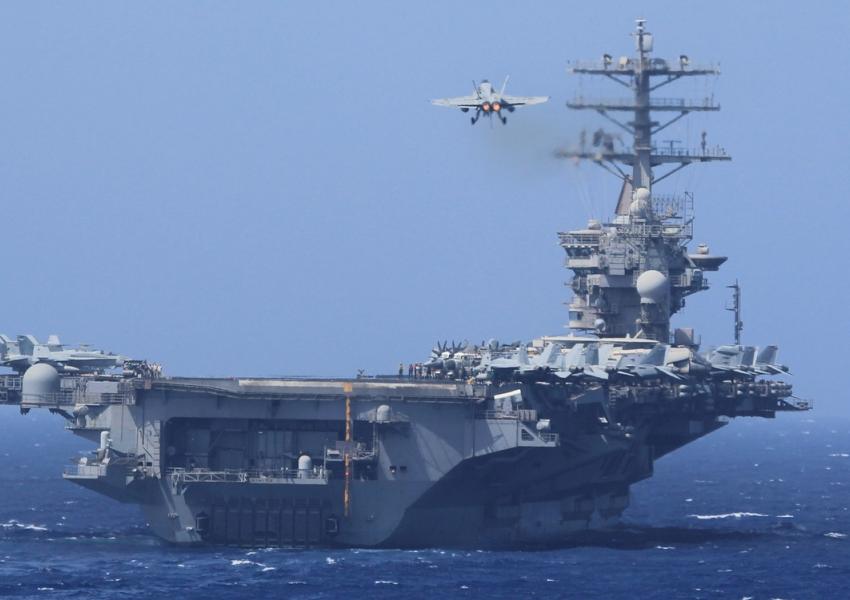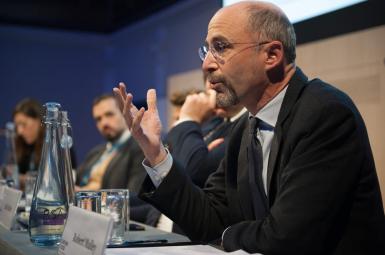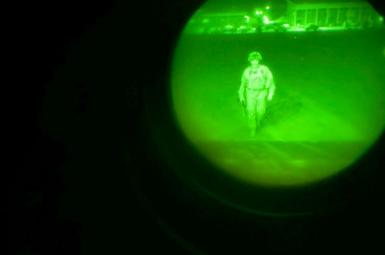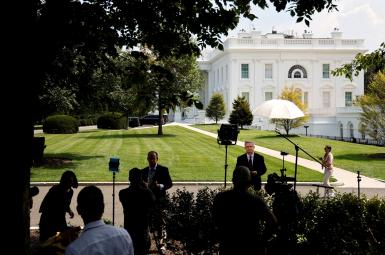
Iran Says US Election 'A Message' For Its Regional Allies
Saeed Khatibzadeh, Iran’s foreign ministry spokesman, has said the United States presidential election bears “a great message for the countries in the region” who “take the risk of clinching enormous arms deals with an administration in the hope of buying security.”
According to Iranian media, Khatibzadeh was referring to the $110 billion arms deal agreed with Saudi Arabia during President Donald Trump’s visit in 2017, his first foreign trip after winning the 2016 presidential election. The Trump administration has also recently agreed to sell F-35s, advanced aircraft, to the United Arab Emirates, despite opposition from both the Democrats and Israel.
Khatibzadeh said that notwithstanding the US election result “some of Iran's neighbors are still thinking about buying security and loyalty and are focusing on lobbying operations in other countries.” The Gulf Arab states are reported to have spent over $100 million on Washington lobbyists in the past three years.
Khatibzadeh’s attacking statement contrasted with Foreign Minister Mohammad Javad Zarif’s call on November 8 for dialogue among neighbors “now that Trump is gone.”
“The Islamic Republic has constantly been extending its neighbors friendly gestures in order to prompt those countries that have isolated themselves from others to seek their way back to regional alliance and pursue their calm in regional arrangements,” Khatibzadeh said. But he did not explain what regional alliances he was speaking about. The Islamic Republic has not been part of any regional alliance. On the contrary Arab states have the Gulf Cooperation Council and other inter-state ties.
Elsewhere in his remarks, the Iranian spokesman responded to the prediction from Israel’s Minister of Settlements Tzachi Hanegbi that an American return to the 2015 Iran nuclear deal under a Biden administration would lead to war between Israel and Iran. “Israeli officials are very much warlike, but want to wage wars at the expense of American the blood of troops,” Khatibzadeh noted”. He added, apparently referring to Iran’s military presence in Syria, that if Israel had the ability to engage in warfare, it would do so “near Lebanon and Syria.”
He further accused Israel of fomenting crises. According to the Iranian state-owned news channel Press TV, Khatibzadeh said Iran “does not joke” over its security, and that aggressors had received timely responses whenever necessary and had been forced to “seek sanctuary inside their lairs.”
Other Iranian officials have reacted to the US election result with a mixture of political naivety and incorrectness.
“Regardless of the US election’s impact on the future of bilateral relations, one cannot help to be happy about Trump's departure,” Education Minister Mohsen Haji Mirzai told IRNA, the official news agency. “He was alien to human values.”
“Iranians uttered a sigh of relief following Trump’s defeat in the election,” said former culture minister Ali Jannati.
“It is Trump’s departure that is important, not Biden’s arrival,” tweeted Mohammad Ali Abtahi, a vice president under former reformist president Mohammad Khatami. “Biden is not Iran’s savior, but he provides an opportunity for us although we should not pin our hopes on possible opportunities.”
Hardline parliamentarian Alireza Zakani opined that “the downfall of Trump shows that defeating upcoming governments in the United States is going to be even easier.” Fellow conservative law-maker Jalil Rahimi referring to Iranian groups active against the Islamic republic, warned that “Zionist opposition groups,” including the Mojahedin-e Khalq (MEK), currently based in Albania, “might take advantage of the new situation to create tensions between Iran and America.”








